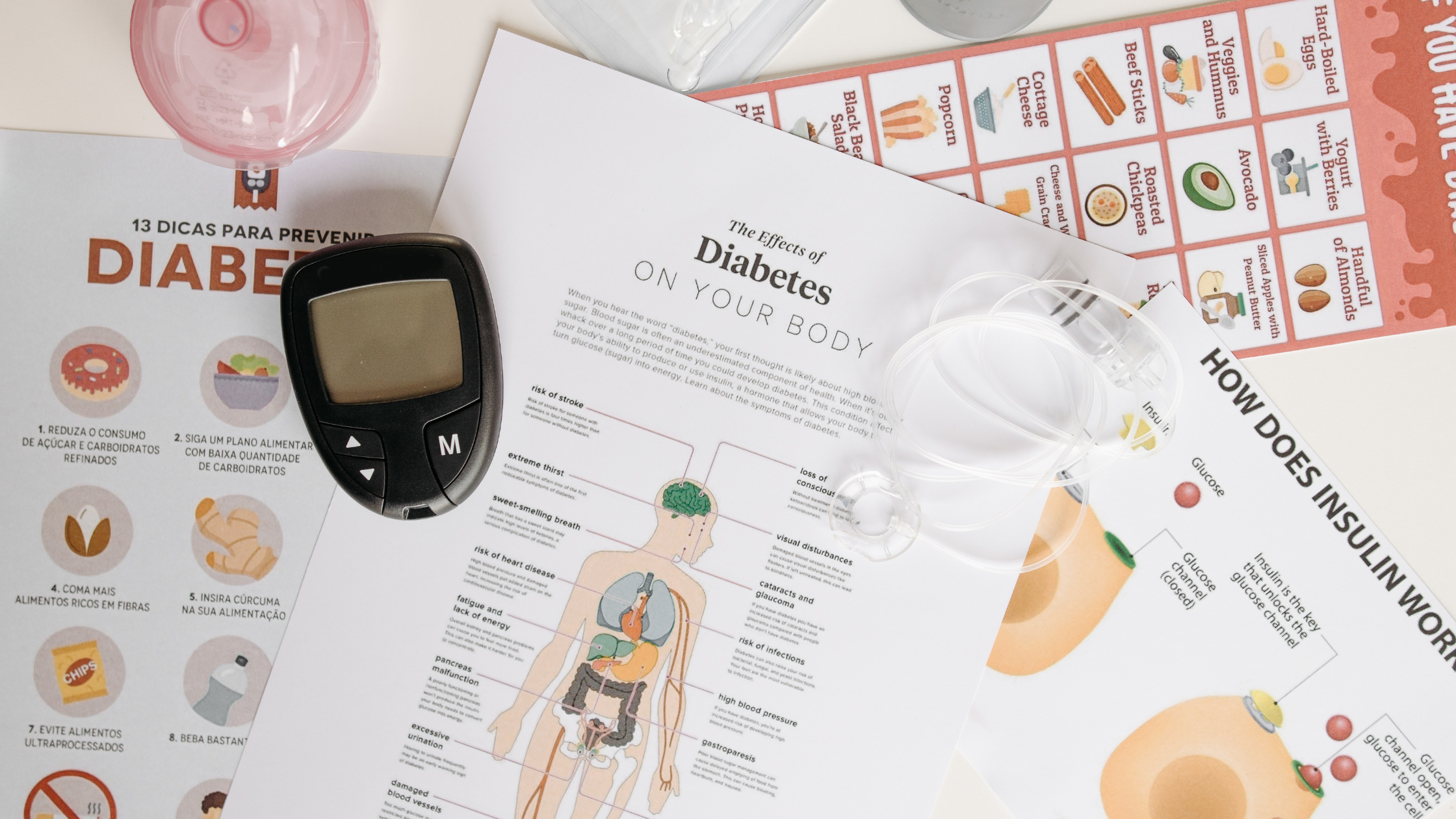7 Intermittent Fasting Myths Busted
Written by TYE Medical on Jun 9th 2025
Intermittent fasting has become a widely accepted fixture in the weight loss world. Many have found success with this method that restricts your daily eating window, reducing overall calorie intake. While many claims have been made about intermittent fasting, the details are more nuanced. Too much inaccurate information has circulated, leaving some confused or even totally misled about this common diet trend that seems to be here to stay.
Recent research conducted by the University of Chicago has clarified some of those details, and an article based on this study helps put myths to rest. Some of these myths include claims that intermittent fasting causes eating disorders, leads to unhealthy dieting, affects lean muscle mass, and causes fertility issues.
Two types of intermittent fasting, alternate day and time-restricted are included in the study’s report. Alternate-day fasting refers to alternating between limited calorie days and unrestricted calorie days, while time-restricted fasting is unrestricted eating during a four to ten-hour window.
Here are 7 intermittent fasting myths busted.
Myth 1: Intermittent Fasting Disrupts Sex Hormones

For the article, authors cited additional research that proves this claim untrue. In fact, intermittent fasting, when done properly, may actually help women with PCOS and does not harm fertility. The general claim and concern has been that intermittent fasting can negatively affect fertility because of the lack of calories and malnutrition associated with fasting. Severe calorie restriction has been known to drop estrogen levels and harm fertility.
However, If you are eating proper calories and nutrients within your eating window, then intermittent fasting doesn’t interfere with fertility as you’re still gaining required nutrition. This also means that intermittent fasting would not cause you to miss a menstrual cycle as is the case with certain eating disorders like anorexia. Again, this is because intermittent fasting, when done correctly, provides the nutrition necessary for maintaining a regular cycle.
Any evidence that intermittent fasting negatively affects sex hormones is very limited and countered by evidence.
Myth 2: Intermittent Fasting Promotes Excessive Muscle Loss

This is just not true. In fact, research indicates that whether fasting or following a different diet plan, people lost the same amount of lean muscle mass. The results showed that a daily calorie-restriction diet and intermittent fasting both resulted in a 75% reduction in fat tissue and a 25% reduction of lean muscle mass. For weight loss, it just depends on which approach works best for you and your lifestyle. Muscle loss is a general risk with weight loss.
If you’re trying intermittent fasting or other diet, adding resistance training and increasing protein can prevent loss of lean muscle.
Myth 3: Intermittent Fasting is Less Nutritional

When put to the test, research says otherwise. Whether you fast for shorter periods (4 to 6 hours) or longer periods (8 to 10 hours), nutritional values did not change concerning the following:
- Protein
- Fiber
- Total Fat
- Cholesterol
- Sugar
- Saturated fat
- Carbohydrates
- Sodium
- Caffeine
Ultimately, a nutritional diet all depends on choices. If you make poor choices before you begin intermittent fasting, you’re more likely to make unhealthy choices during your eating windows. However, some people begin making better choices as they learn more about healthy eating and commit to losing weight. Intermittent fasting doesn’t have to be less nutritional unless you choose to make unhealthy choices during your eating windows.
Myth 4: Intermittent Fasting Can Cause Eating Disorders

Research suggests that intermittent fasting doesn’t cause eating disorders. However, those included in the studies were at a low-risk for eating disorders and didn’t develop them after the four-week study. Some argue that four weeks isn’t long enough to determine whether an eating disorder would develop. However, these participants reported less binge-eating, less concern about weight, and reduced anxiety about their appearance. Overall, it seems that intermittent fasting cultivated a healthier relationship with food and some increase in self-esteem.
However, some people are more prone to developing eating disorders, which means some caution should be taken in such cases. It’s possible that intermittent fasting could, over time, trigger an eating disorder in someone who is already at risk for developing one.
Myth 5: Intermittent Fasting Cures Diabetes

A brief study indicates that intermittent fasting could drive type 2 diabetes into remission, making it not necessarily a chronic, lifelong condition However, this research isn’t conclusive as it was only a three-month study. This short period isn’t long enough to determine intermittent fasting’s long-term effect on blood sugar. However, it is widely accepted that managing your weight is critical to managing diabetes even though it’s not considered a “cure”.
Instead, you can view weight management as a tool for improving symptoms and reducing underlying causes of diabetes. Intermittent fasting can reduce insulin resistance and improve insulin sensitivity. This is because calorie restriction is part of intermittent fasting and weight loss follows. If you are intermittent fasting with diabetes, eating more fruits and vegetables, staying hydrated, consuming more fiber, and getting routine exercise consistently can boost diabetes management.
Myth 6: Intermittent Fasting Can Keep Weight Off Long Term

The truth is–we don’t know. No viable long-term studies lasting over a year have been conducted, and it would take more time to determine the long-term effect of intermittent fasting. One study suggests that intermittent fasting is more effective for weight loss in the short term than daily calorie-restriction. But this does not help us understand the long-term effects of intermittent fasting once you end your eating window restrictions and continue a regular daily diet.
However, common sense tells us that if eating habits and portion control improved during the time of intermittent fasting, the long-term effects would be positive for long-term weight loss. If you want to increase the odds of success even more, you can consult with a dietician for nutrition education and supervision to help you keep the weight off. Once losing the weight after intermittent fasting, maintenance will require understanding how to prevent weight gain. In short, whether you lose weight off long term depends on your dietary habits after you stop intermittent fasting.
Myth 7: It’s Safe for Anyone to Fast Intermittently

Generally speaking, yes, intermittent fasting is safe. Most people would probably only benefit from it. However, there are exceptions, especially if you have type1 or 2 diabetes. If you have type 2 diabetes, intense or drastic weight loss could increase your risk of death, including cardiovascular mortality.
With any type of diabetes, you should seek guidance from a medical professional before pursuing intermittent fasting as a weight loss option. Yes, intermittent fasting might benefit type 2 diabetes, but there could also be complications as the fasting windows could drop your blood sugar dangerously low. Your doctor might offer advice on how to alter the plan for your condition or perhaps recommend against it, depending on your medical conditions.
Additionally, it may be wise to avoid intermittent fasting if you:
- Are under 18
- Are pregnant
- Are lactating
- Have a history of eating disorders
- Take prescriptions that require food
- Have kidney disease
- Have a disease requiring specific nutrient balance
Popular Intermittent Fasting Methods

Approaches to intermittent fasting involve either dividing your days or weeks into fasting windows and eating windows. Fasting usually means not eating anything or eating very few calories during the specified period. Usually, you can eat however you want during eating periods. However, it’s important to be wise about this if your goal is weight loss. It’s best to eat reasonably healthy and avoid gorging during eating windows.
Often, during fasting windows you’re also allowed calorie-free beverages that include black coffee, herbal tea, water, etc.
16/8 Method
When using this method, you have an 8-hour eating window and a 16-hour fasting window. Typically, the majority of the fasting window is during sleeping hours and skipping either breakfast or supper. For example, you might begin your eating window at 12 p.m. and end it at 8 p.m. This is when your fast would begin and continue throughout the night while you sleep. In this case you would skip breakfast and start your next eating window at noon the next day.
Eat-Stop-Eat
This more advanced method should only begin once you’re more comfortable with the fasting. It involves fasting for 24 hours once or twice weekly and eating regularly the rest of the week. Again, on your eating days, for weight loss purposes, it’s best to be mindful of what you’re eating.
5:2 Method
This is similar to the eat-stop-eat method but is less rigorous. You fast on two-nonconsecutive days and normally the remaining 5 days. However, fasting days involve eating 500-600 calories. In this case, it’s a fast because of the extreme calorie restriction but is not a complete abstinence from food. This is often more feasible if you aren’t accustomed to total fasting.
Any of these methods restrict calories by restricting your eating periods and can aid in your weight loss goals.
Keys to Intermittent Fasting
Not everything you hear about intermittent fasting is true. It’s important to distinguish between myth and fact. Intermittent fasting restricts your eating periods and calorie intake but also is flexible and easy to adapt to most lifestyles. However, it isn’t for everyone, especially those who have diabetes, are under 18, or are pregnant.
Intermittent fasting is not a miracle diet. You still need to be careful about what you consume during your eating windows if you are interested in weight loss, nutrition, and overall health. You can increase weight loss effects by adding regular exercise like cardio and strength training.


